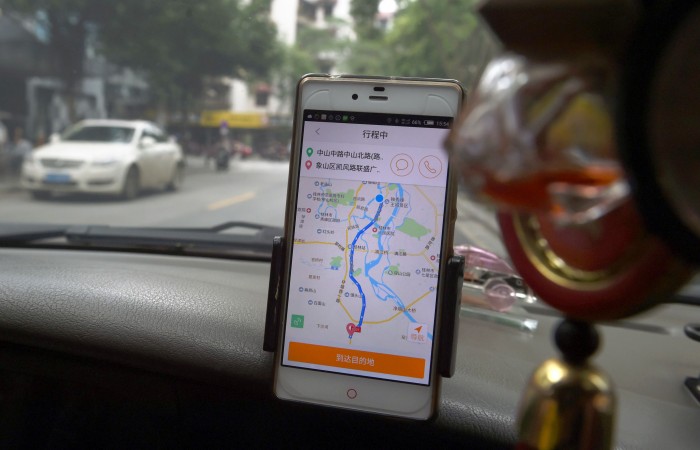China Gives Ride-Hailing a Green Light
The Chinese government has issued new regulations that confirm the legal status of the ride-hailing industry in the country.
New documents issued by China’s Cabinet describe a series of broad guidelines about the ways in which ride-hailing operations should be run. Meanwhile, finer details will be left to cities to determine.
Until now, Uber and its rivals—chief among them the homegrown Chinese company Didi Chuxing, which significantly outperforms the U.S. company—have operated in a legal gray area in many regions of China. As such, they’ve been left wide open to legal disputes. Last year, for instance, Uber’s Guangzhou offices were raided over claims that the company was running unlicensed taxi operations.

Vice Minister of Transportation Liu Xiaoming explained to Reuters that “in managing online ride hailing, on the one hand we want to promote its development, on the other hand we want to regulate its behavior.”
Many of the rules will be welcomed by riders. Drivers will be expected to: pass a crime check, have three years of driving experience, and be using a vehicle that’s less than eight years old and with under 370,000 miles on the clock. Cities, meanwhile, may place limits on pricing or specify that drivers use only certain types of vehicles.
Some critics, however, may argue that the rules don’t do enough to protect workers. Just as in the U.S., Uber and Didi Chuxing treat drivers in China as contractors. In a previous draft of the new guidelines, it was proposed that ride-hailing companies would have to sign agreements with drivers that registered them as employees. The new rules, however, explain that different types of labor contracts will be permitted, suggesting that the companies may still be able to avoid providing workers with, say, vacation time or sick leave.
Responding to the news, Uber referred to it as a "welcome step" that would send a "message of support for ride-sharing and the benefits that it offers riders, drivers, and cities." Didi Chuxing, meanwhile, simply said that it will make an "earnest effort" to comply with the new regulations.
Didi Chuxing can perhaps afford to sound relaxed. It’s thought to command around 87 percent of the private car-hailing business in China, and it recently received $1 billion in funding from Apple. Uber, meanwhile, has admitted that it’s losing $1 billion a year in China.
With new regulations in place, the pair will hope to avoid scuffles with lawmakers and instead concentrate on the task at hand. For Uber, though, that still involves a lot of catch-up.
(Read more: Reuters, Business Insider, “A Chinese Rival Beats Uber at Its Own Game,” “Uber and Lyft Are Still Trying to Avoid Acting Like Regular Employers”)
Keep Reading
Most Popular
Large language models can do jaw-dropping things. But nobody knows exactly why.
And that's a problem. Figuring it out is one of the biggest scientific puzzles of our time and a crucial step towards controlling more powerful future models.
How scientists traced a mysterious covid case back to six toilets
When wastewater surveillance turns into a hunt for a single infected individual, the ethics get tricky.
The problem with plug-in hybrids? Their drivers.
Plug-in hybrids are often sold as a transition to EVs, but new data from Europe shows we’re still underestimating the emissions they produce.
Google DeepMind’s new generative model makes Super Mario–like games from scratch
Genie learns how to control games by watching hours and hours of video. It could help train next-gen robots too.
Stay connected
Get the latest updates from
MIT Technology Review
Discover special offers, top stories, upcoming events, and more.